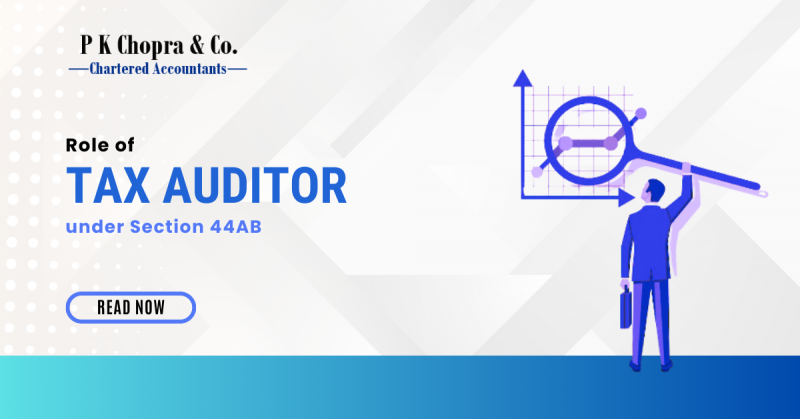Demystifying the Role of a Tax Auditor under Section 44AB
Introduction
Taxes are an integral part of any modern society. They fund public services, infrastructure, and government operations that keep our nations running smoothly. However, ensuring that taxpayers pay their fair share and that tax collection is accurate and transparent is no small feat. This is where tax auditors come into play, particularly under Section 44AB of the Income Tax Act. In this blog post, we will explore the crucial role of tax auditors under Section 44AB and shed light on their responsibilities and significance in the world of taxation.
Understanding Section 44AB
Section 44AB of the Income Tax Act, 1961, deals with the requirement of tax audit. It mandates that certain taxpayers are required to have their accounts audited by a qualified tax auditor. This section primarily applies to individuals, businesses, and entities that meet specific income thresholds. The objective is to ensure the accuracy and integrity of financial reporting and tax compliance.
Who Requires a Tax Audit under Section 44AB?
- Businesses: Any person carrying on a business with a turnover exceeding ₹1 crore (subject to change as per amendments) is required to undergo a tax audit under Section 44AB.
- Professionals: Individuals or professionals such as doctors, lawyers, and consultants must undergo a tax audit if their gross receipts exceed ₹50 lakhs (subject to change as per amendments).
- Presumptive Taxation: Even if your income is lower than the prescribed limits, if you opt for presumptive taxation under Sections 44AD, 44ADA, or 44AE, you may still require a tax audit.
Role and Responsibilities of a Tax Auditor
- Examination of Financial Records: A tax auditor’s primary responsibility is to thoroughly examine the financial records and accounting books of the taxpayer. This includes scrutinizing income, expenses, investments, and any other financial transactions.
- Verification of Compliance: The tax auditor ensures that the taxpayer is complying with the provisions of the Income Tax Act. This includes verifying whether the taxpayer has deducted and deposited taxes at source, maintained proper records, and adhered to tax laws.
- Reporting: After the audit, the tax auditor prepares an audit report, which is submitted to the taxpayer and the Income Tax Department. This report contains crucial information about the taxpayer’s financial health and tax compliance.
- Certification: The tax auditor provides a certification in the audit report, stating whether the financial statements are a true and fair representation of the taxpayer’s financial position. This certification is vital for various purposes, including securing loans and contracts.
Significance of Tax Auditors under Section 44AB
- Enhanced Transparency: Tax audits promote transparency in financial reporting. They ensure that businesses and professionals maintain accurate records, reducing the chances of tax evasion.
- Taxpayer’s Confidence: When financial statements are audited by a qualified tax auditor, it instills confidence in the taxpayer’s financial credibility. This can be particularly advantageous when seeking investments or loans.
- Reduced Tax Evasion: Tax audits act as a deterrent to tax evasion. Knowing that their financial records may be subject to scrutiny, taxpayers are more likely to comply with tax laws.
- Government Revenue: Tax audits help the government collect the right amount of taxes, thus contributing to the nation’s revenue. This revenue is essential for funding public projects and services.
Conclusion
In the complex landscape of taxation, tax auditors under Section 44AB play a pivotal role in upholding fairness, accuracy, and compliance. Their diligent examination of financial records ensures that taxpayers meet their obligations, and it enhances the overall integrity of the tax system. So, the next time you hear about a tax audit, remember that it’s not just about numbers; it’s about maintaining the financial health and fairness of our society.

